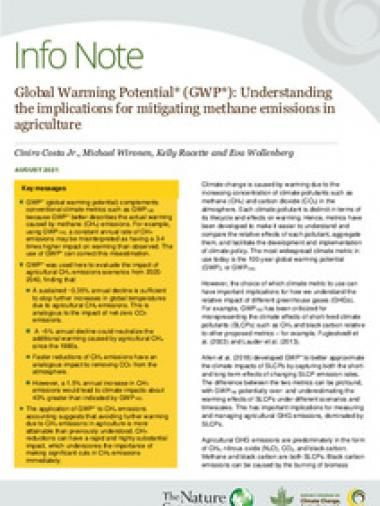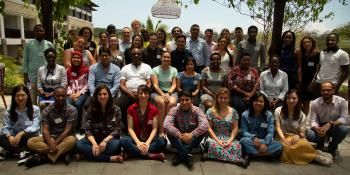Global Warming Potential* (GWP*): Understanding the implications for mitigating methane emissions in agriculture

KEY MESSAGES:
- GWP* (global warming potential) complements conventional climate metrics such as GWP100 because GWP* better describes the actual warming caused by methane (CH4) emissions. For example, using GWP100, a constant annual rate of CH4 emissions may be misinterpreted as having a 3-4 times higher impact on warming than observed. The use of GWP* can correct this misestimation.
- GWP* was used here to evaluate the impact of agricultural CH4 emissions scenarios from 2020- 2040, finding that:
- A sustained ~0.35% annual decline is sufficient to stop further increases in global temperatures due to agricultural CH4 emissions. This is analogous to the impact of net-zero CO2 emissions.
- A ~5% annual decline could neutralize the additional warming caused by agricultural CH4 since the 1980s.
- Faster reductions of CH4 emissions have an analogous impact to removing CO2 from the atmosphere.
- However, a 1.5% annual increase in CH4 emissions would lead to climate impacts about 40% greater than indicated by GWP100.
- The application of GWP* to CH4 emissions accounting suggests that avoiding further warming due to CH4 emissions in agriculture is more attainable than previously understood. CH4 reductions can have a rapid and highly substantial impact, which underscores the importance of making significant cuts in CH4 emissions immediately.
Citation
Costa Jr C, Wironen M, Racette K, Wollenberg E. 2021. Global Warming Potential* (GWP*): Understanding the implications for mitigating methane emissions in agriculture. CCAFS Info Note. Wageningen, The Netherlands: CGIAR Research Program on Climate Change, Agriculture and Food Security (CCAFS).
